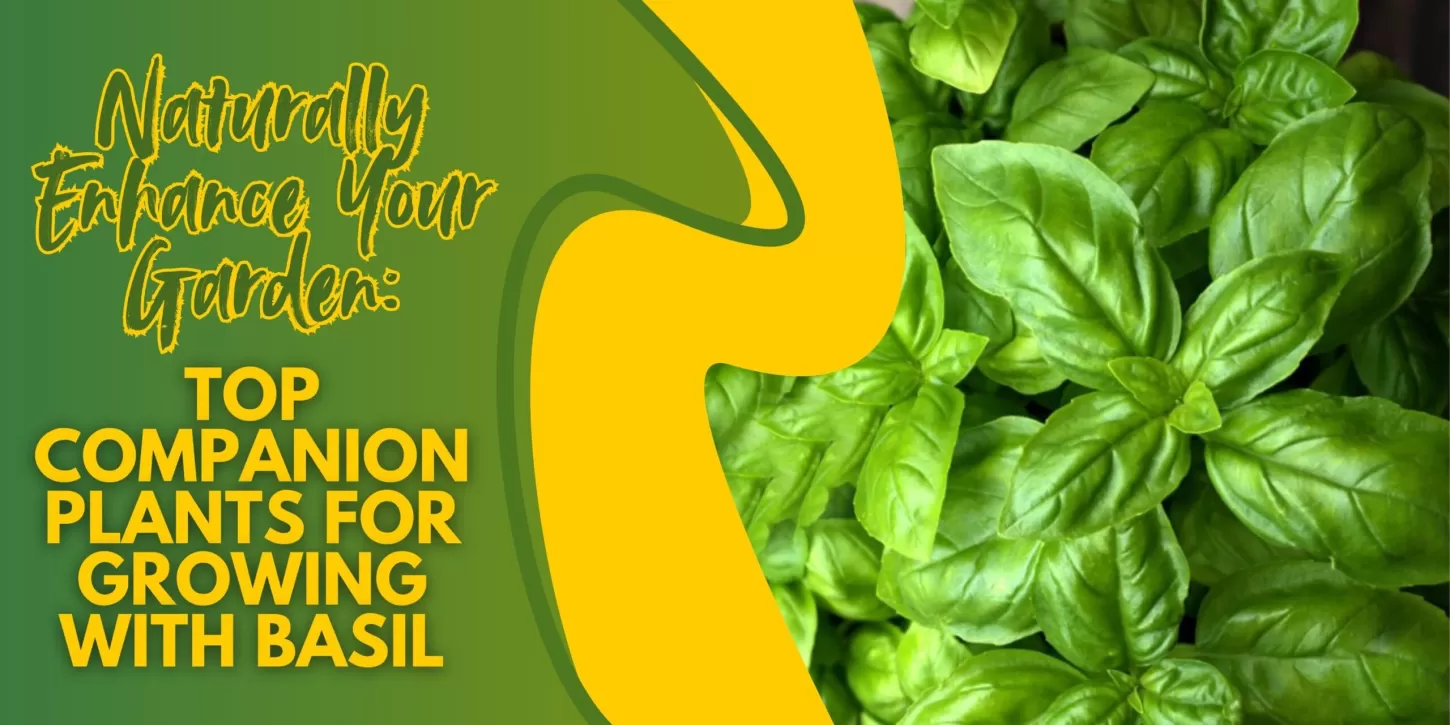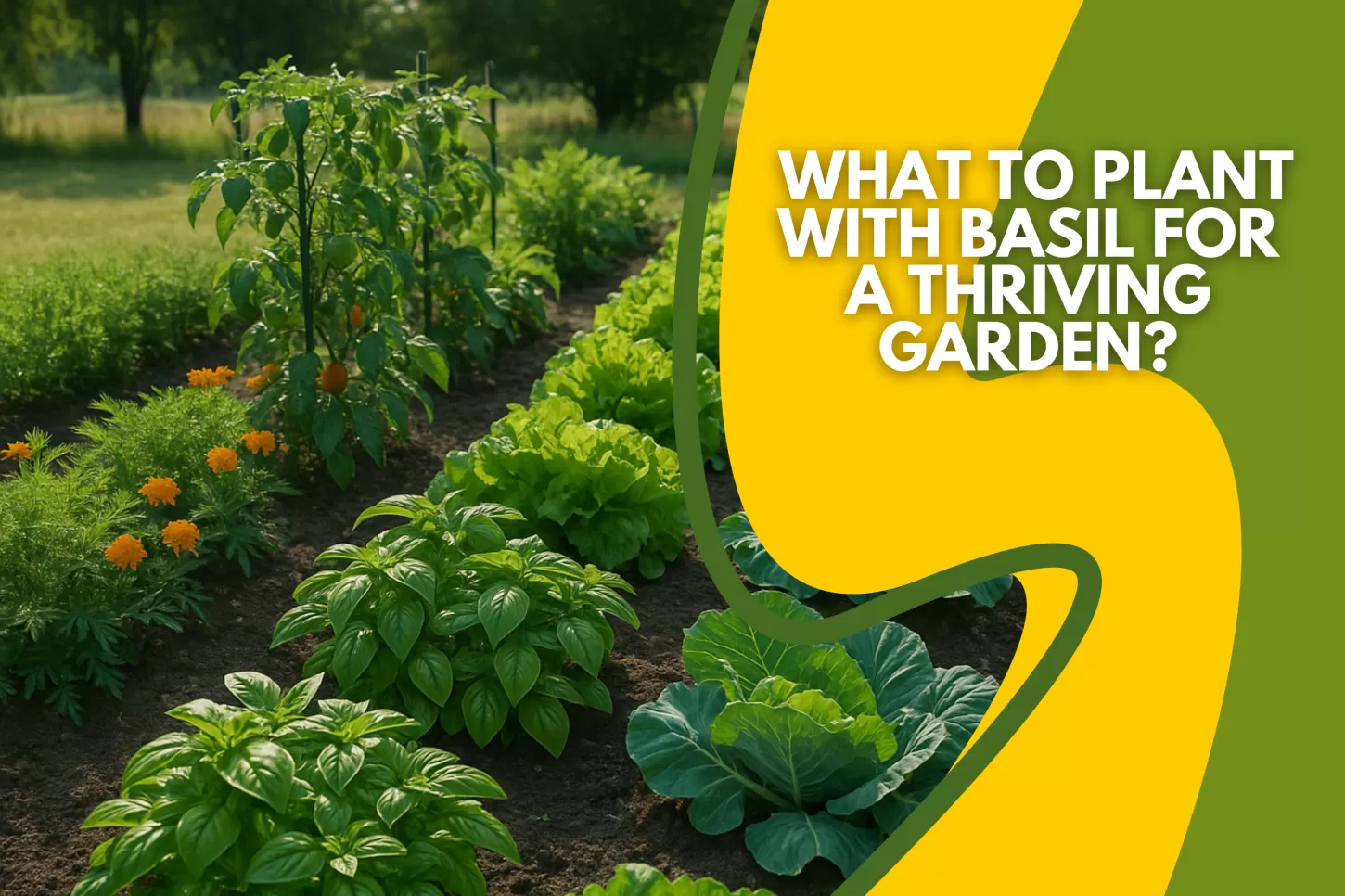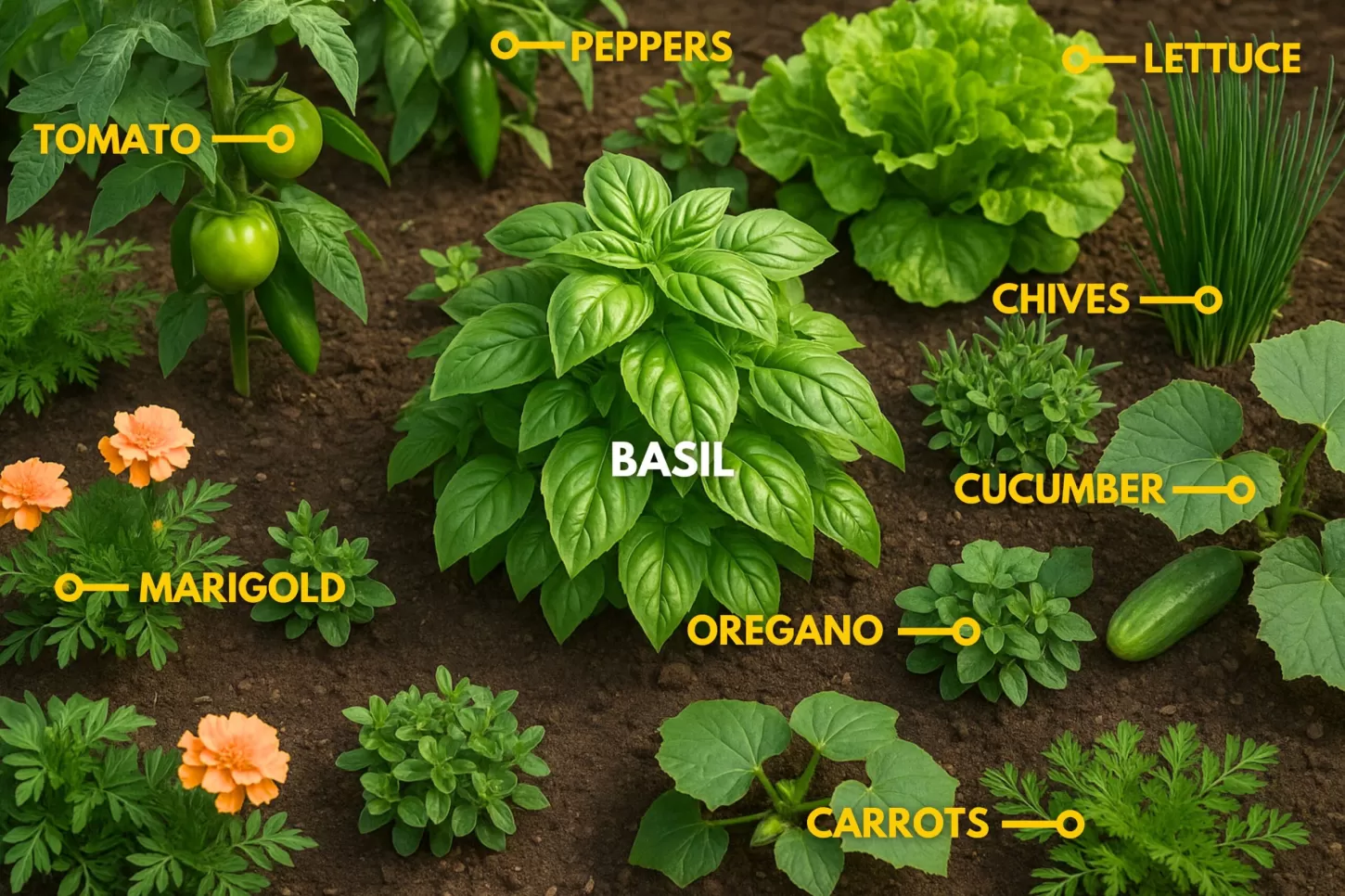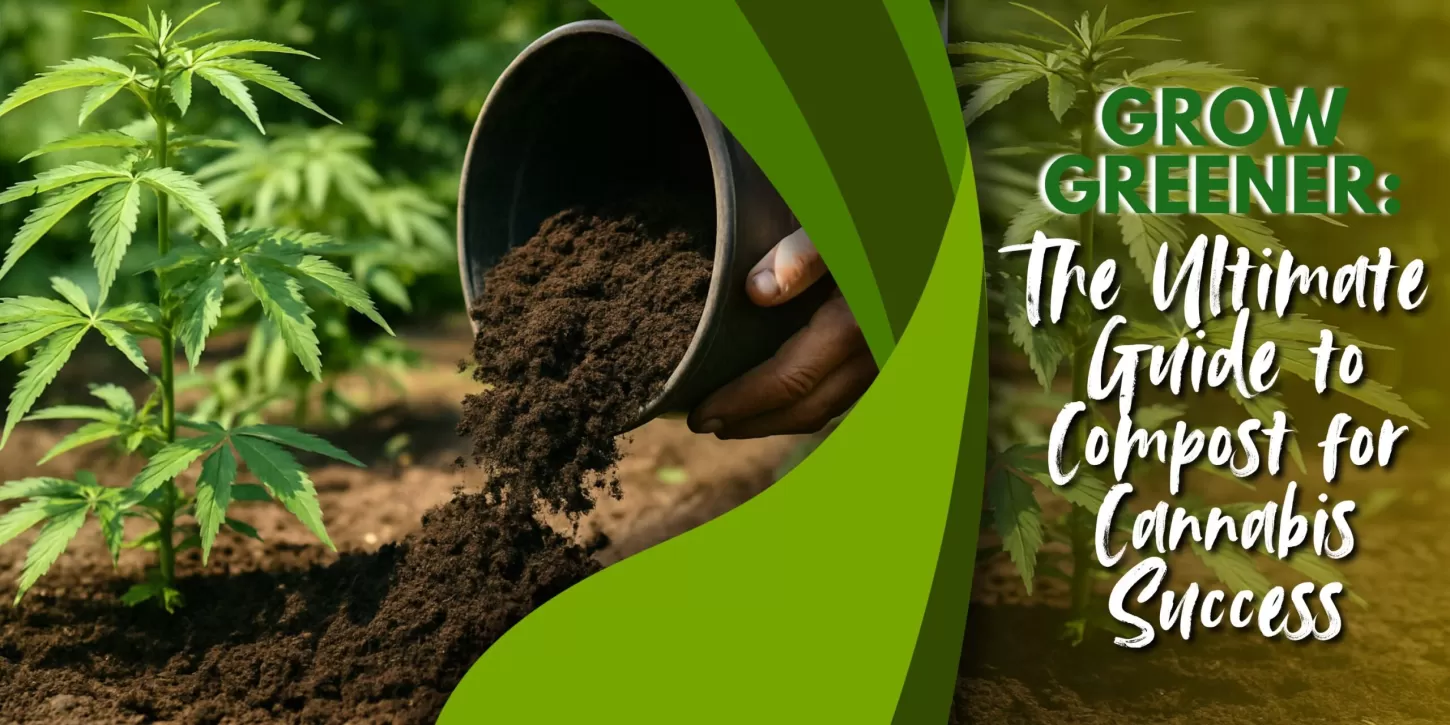Home / Naturally Enhance Your Garden: Top Companion Plants for Growing with Basil

Want to level up your garden? Let’s discuss basil companion plants — an easy, organic way to make your plants grow stronger together! Basil is not only a delicious herb for your cooking; it’s also an excellent garden companion. When planted alongside the proper companions such as tomatoes, peppers, and oregano, basil can enhance flavor, growth, and even repel pests.
And you may be thinking, does basil repel aphids? Well, yes it does! Basil’s pungent, powerful aroma naturally deters aphids and other nuisance insects, qualifying it as an effective plant protector. Growing basil alongside other plants is a good and simple strategy for maintaining a healthy, vibrant garden without depending on toxic chemicals.
In this blog, we’ll dive into the best plants to grow with basil and how this green little hero makes your garden life better!

Basil is more than just a fragrant herb used to flavor your favorite dishes — it’s also a star performer in the garden. One of the most satisfying methods of growing basil is by combining it with other plants that will naturally thrive with its presence. This gardening technique is known as companion planting, and basil is one of the most suitable herbs for it. In this article, we’ll discuss everything there is to know about selecting the right basil companion plant, how companion planting is effective, and what to plant with basil for a more productive, healthy garden.
A basil companion plant is any herb, vegetable, or flower that will flourish with basil, providing each other with such benefits as pest suppression, better flavor, or increased growth. Companion planting is a time-tested horticultural practice that cultivates plants that complement each other by planting them together to increase yield, repel destructive insects naturally, and add nutrients to the soil.
When you companion plant basil, you not only get to reap its culinary benefits but also get to enjoy its pest-repellent and beneficial insect-attracting properties. Due to its pungent smell and natural oils, basil can repel unwanted pests and improve the flavor and growth of neighboring crops.
Basil is a natural garden guardian. Its sweet-scented leaves emit essential oils, which keep pests like mosquitoes, flies, aphids, and spider mites away. The aroma also draws pollinators like bees and butterflies, enhancing the health and yields of neighboring plants.
Companion planting with basil is not only for pest control. Basil also supposedly enhances the taste and growth of certain crops. When planted among tomatoes, for instance, it is said to make them sweeter and taste better. Planting basil with the right companions can enhance your garden’s environment, limit your use of chemical pesticides, and enhance your harvest.

If you’re wondering what to plant with basil, you’ll be pleased to know there’s a long list of suitable partners. Here are some of the best basil companion plants to consider adding to your garden:
One of the most well-known companions for basil is the tomato. When you companion plant tomatoes with basil, both crops profit. Basil keeps whiteflies and tomato hornworms away from the tomatoes and enhances the tomatoes’ growth and taste. This combination works well in garden beds and in container gardens.
Both sweet peppers and hot peppers do extremely well if planted with basil. The natural oils in the herb repel aphids, spider mites, and beetles that are capable of attacking pepper plants. Bushy basil also shades the soil, which protects the peppers from heat and keeps the soil moist.
Basil is an excellent companion for leafy greens such as lettuce. It repels pests such as aphids and beetles, and the lettuce gives a low-growing ground cover that maintains moisture levels near basil’s roots.
Oregano and basil are good companions in the kitchen and garden. Growing these herbs together will enhance flavor and encourage pollinators while preventing pests such as aphids and spider mites.
Marigolds are famously known to keep pests at bay. Planted alongside basil, they protect your garden against nematodes, aphids, and other unwanted insects. Both plants complemented together will give your garden a boost in looks and health.
Chives are yet another herb that compliments basil perfectly. Chives ward off aphids and Japanese beetles, thus adding some level of intelligence to your herb bed or vegetable bed.
Cucumbers are also helped by basil’s pest-deterrent qualities, such as keeping cucumber beetles away. The leaves of the basil also provide some shadow on the ground for cucumber plants, keeping their soil cool on hot summer days.
Even though carrots are planted underground, they are still benefited by basil’s pest-deterring qualities. Basil grown around carrots can help minimize issues of carrot flies and other pests in the soil.
Although basil along with most garden crops, there are a few that don’t get along. Refrain from planting basil along with these:
Understanding what to plant with basil — and what to avoid — is key to a successful companion planting strategy.
If you’re ready to add basil to your garden layout, here are a few tips for making the most of this fragrant herb:
Incorporating a basil companion plant strategy into your garden not only improves the overall health of your plants but also boosts flavor, repels pests naturally, and creates a vibrant, thriving ecosystem. Whether you’re growing tomatoes, peppers, or marigolds, basil is one herb you’ll want by their side.
If you ever asked what to grow with basil, now you know — the choices are diverse, and the benefits are tasty. So the next time you garden, be sure to plant some basil and let this potent little herb do its thing.
Q: Can you smoke basil like weed?
A: Technically, yes — you can smoke and dry basil leaves. But it won’t get you high like weed (cannabis) does. Basil doesn’t have THC, the active ingredient that makes weed psychoactive.
Q: Is smoking basil safe?
A: Although basil is a natural plant, smoking anything has health dangers. Your airways and lungs can get irritated by inhaling smoke, even if it’s basil. It’s safer for cooking, tea, or aromatherapy.
Q: Why would anyone smoke basil?
A: Some individuals play around with smoking basil for its subtle, herbaceous scent and relaxing effects. It’s also blended with other herbs in relaxing herbal blends or ritual use.
Q: Are there any psychoactive effects with basil?
A: Nope — basil won’t get you stoned. It might provide a calming, lightly energizing sensation when consumed as a tea or used as an essential oil, but not psychoactive like weed.
Q: Is basil combinable with weed?
A: Yes — some herbal users combine basil with cannabis for a distinctive taste and to soften the pungency of the smoke. But it won’t enhance the high.
Q: How does smoked basil taste?
A: It tastes sweet, peppery, and herbal — somewhat like it smells fresh, but earthlier when it’s burned.
Q: Is there any health advantage to smoking basil?
A: Not particularly. Basil is wonderful when consumed or as a tea, but smoking it doesn’t release those health benefits in the best way — and breathing in smoke always has dangers.









Explore a world of possibilities with VancouverSeedBank.ca. Your premier source for premium cannabis seeds, delivering quality, variety, and discreet shipping for a seamless growing experience.


Are You 18 Or Over?
By selecting “Continue”, you confirm that you are at least 18 years of age and legally permitted to access cannabis related content in your region.
By using Vancouverseedbank.ca, you agree to our terms of service.